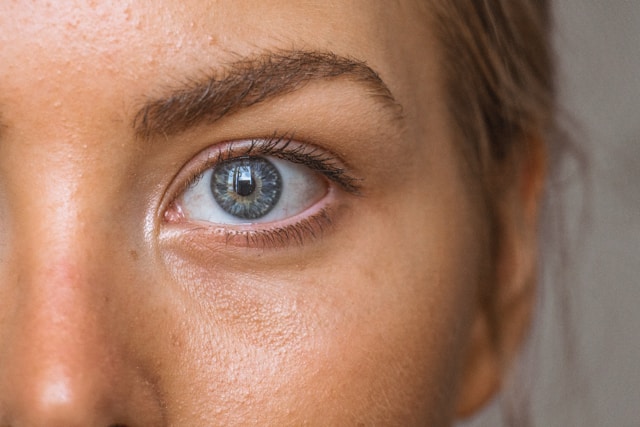
Eye twitching is a common annoyance that can range from a minor spasm to something that impacts your daily life. Normally, it isn’t a cause for concern, but certain conditions can make eye spasms more common.
If you’ve been struggling with eye twitching, we’ve broken down what it is, the possible causes and how to prevent it below.
What is eye twitching?
Eye twitching is an eyelid spasm or movement that you can’t control. There are two main types:
- Minor eye twitches: These are usually linked to stress or caffeine. You can also get eye twitches if you have dry eyes.
- Eyelid myokymia: This condition can involve your upper and lower eyelids. This type of twitching usually affects one eyelid at a time and can last for a few days.
What causes eye twitching?
The exact cause is unknown. It’s believed that several factors increase your chances of developing spasms, though. These include:
- Overworked eyes: Excessive screen time, reading in dim light or even dry eyes can strain the muscles around your eyelids.
- Stress and fatigue: Feeling stressed or sleep-deprived can disrupt the nerve signals sent to your eyelids, causing them to spasm.
- Caffeine and alcohol: These substances can act as stimulants and irritants, triggering eyelid twitching in some people.
- Eye strain: Focusing on near objects for extended periods, like a computer screen, can fatigue the eye muscles.
- Nutritional deficiencies: Dehydration or deficiencies in certain vitamins and minerals, like magnesium, can contribute to eye twitching.
It’s important to note that eye twitching can also be a symptom of brain and nervous disorders. For example, diseases like MS, Parkinson’s and Tourette’s can all lead to involuntary twitching. If you’re concerned, speak to your GP.
How to make the eye twitching go away
While it’s usually temporary, there are steps you can take to prevent eye spasms and reduce their frequency:
- Prioritise sleep: Aim for 7-8 hours of good quality sleep each night. This allows your eyes and body to rest and recharge.
- Get the correct lenses: If you’re experiencing eye strain, it’s important to get the correct eye care. For example, if you have astigmatism, you should get toric contact lenses.
- Reduce screen time: Take frequent breaks from screens and try to look away for 20 seconds every 20 minutes to relax your eye muscles.
- Manage stress: Practice relaxation techniques like deep breathing, meditation or yoga to combat stress and anxiety.
- Limit stimulants: Reduce your intake of caffeine and alcohol, as they can irritate the eyes and worsen twitching.
- Stay hydrated: Drink plenty of water throughout the day to prevent dry eyes.
- Use an eyelid compress: Apply a warm compress to your eyelids for a few minutes several times per day. This can help relax the muscles and ease discomfort.
While eye twitching can be annoying, it’s usually nothing to worry about. By implementing the preventative measures above, you can keep your eyes feeling comfortable so you can get on with your day.
Interesting Related Article: “How to Prevent Eyelash Fall-out?“
from Health Archives - Market Business News https://ift.tt/DA8MhwK
via IFTTT



0 Comments